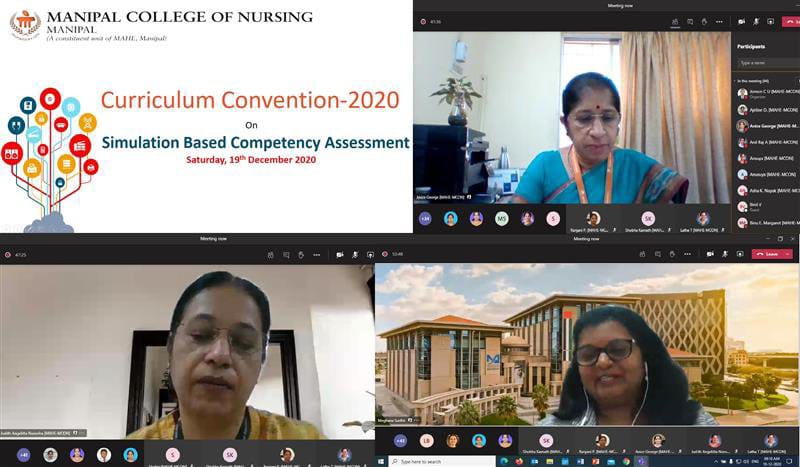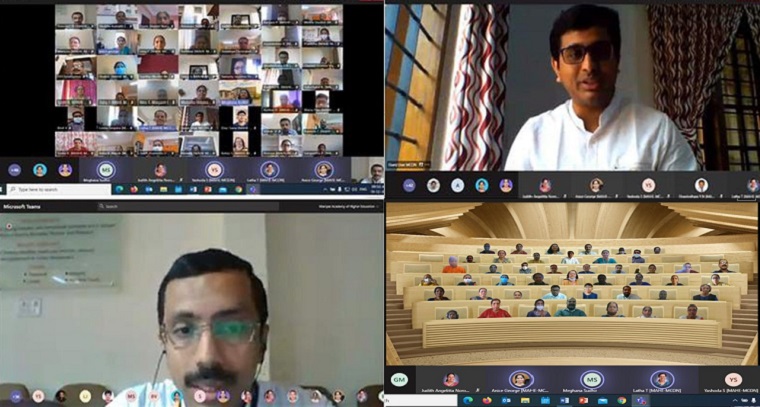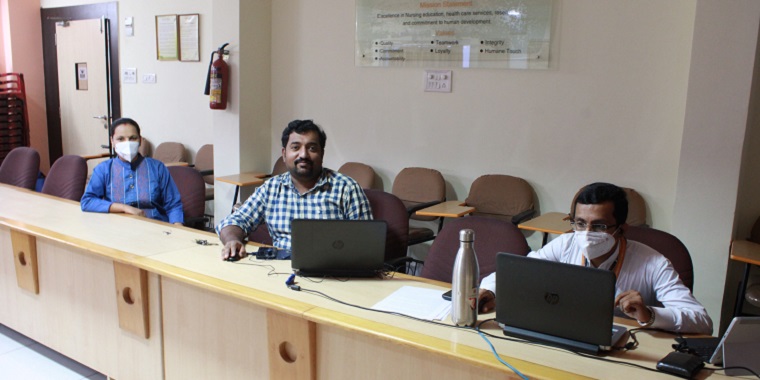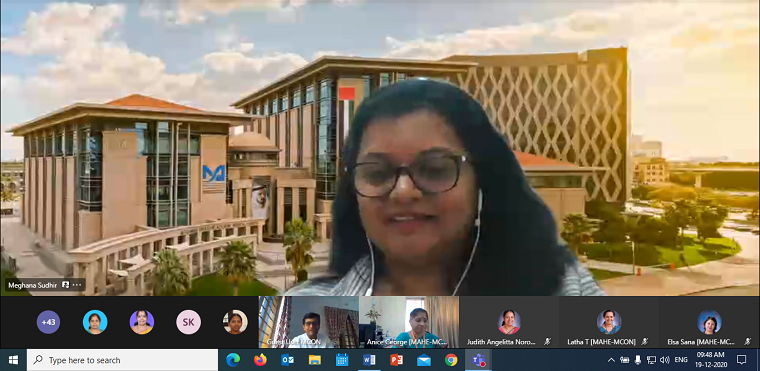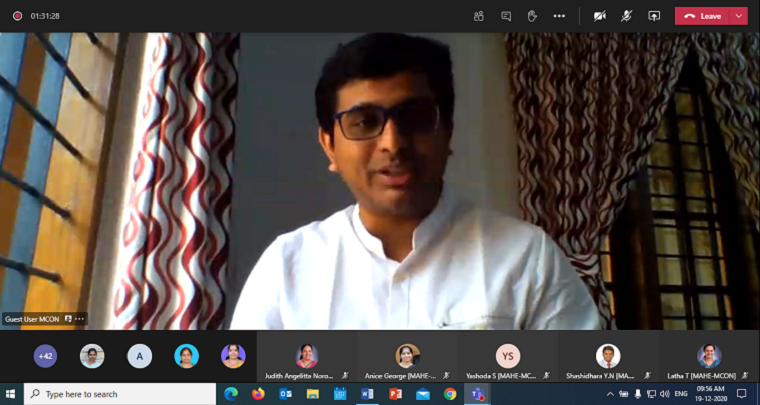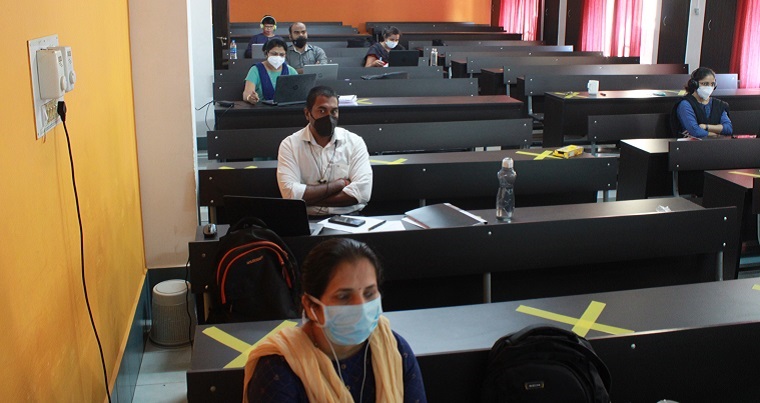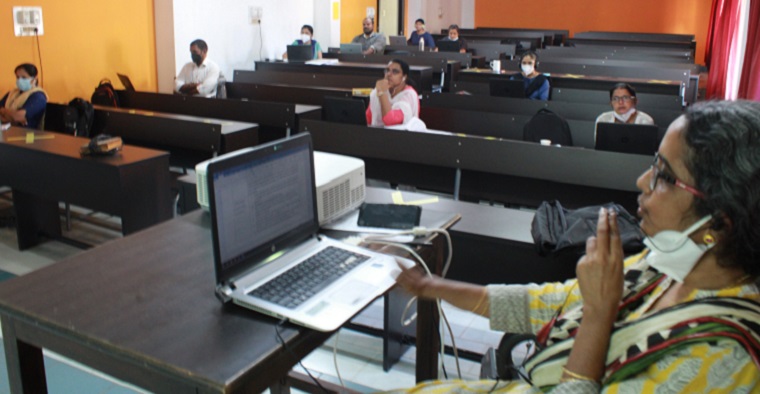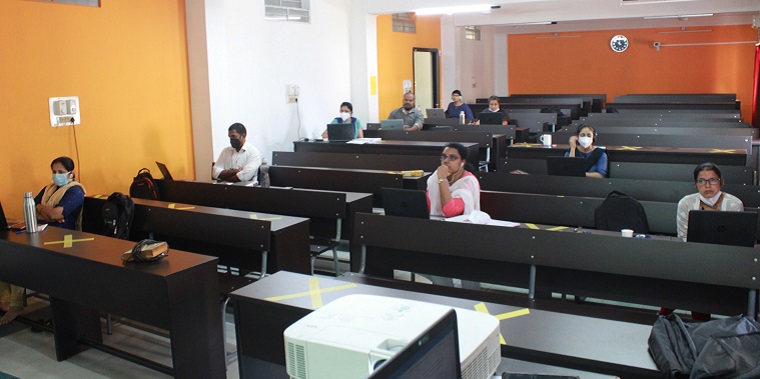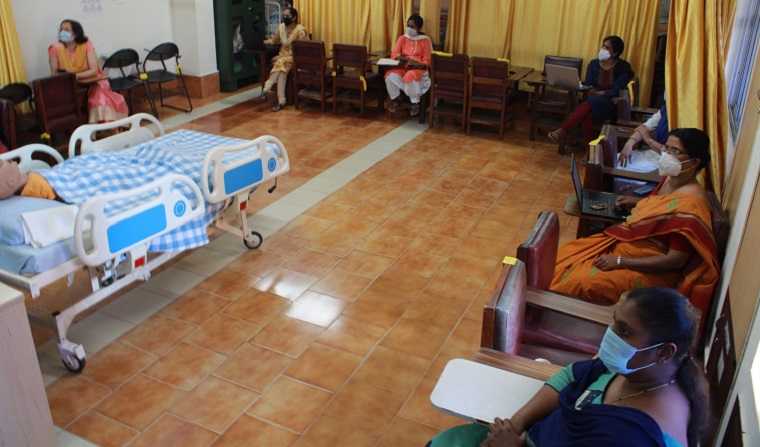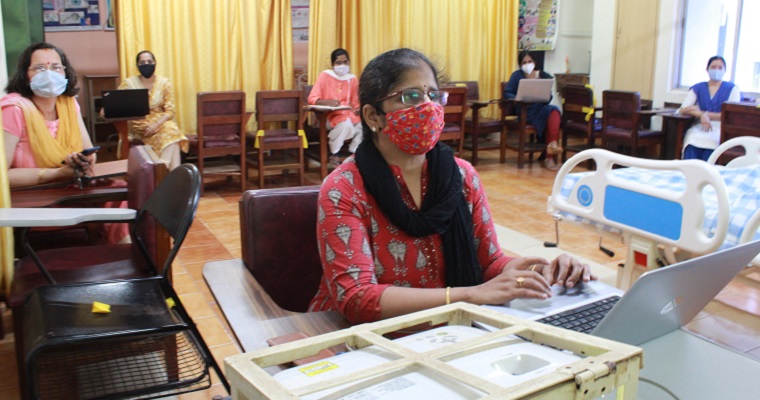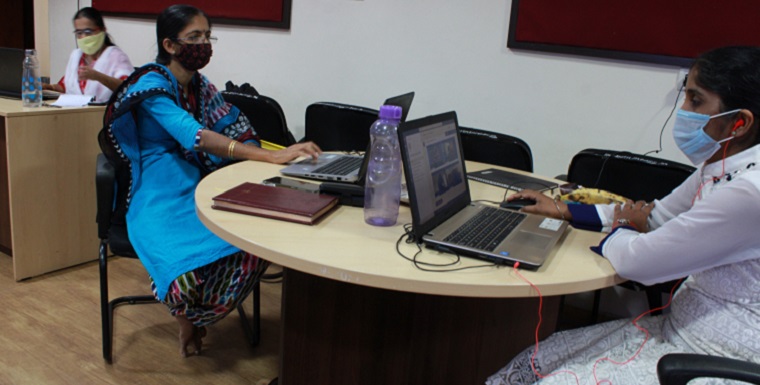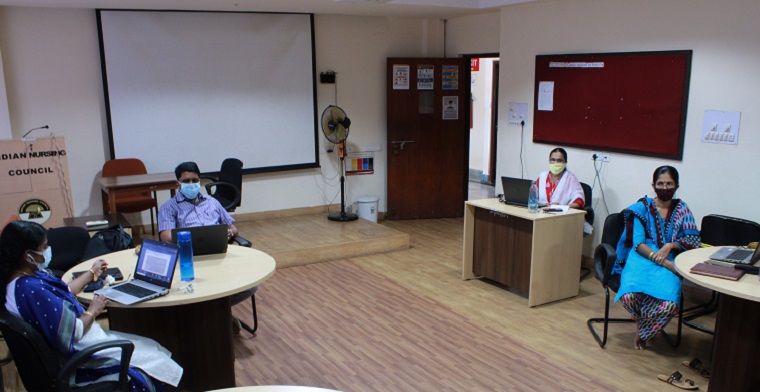Curriculum Convention - 2020
Curriculum Convention 2020 on Simulation-Based Competency Assessment
Amidst the current Covid-19 pandemic, most of the health professional students are physically distant from the classrooms that has considerably changed the dynamics of the education system. In order to develop the clinical competence among students, simulation has emerged as a promising teaching strategy that facilitates the learning of students considering current and future challenges. Curriculum convention is one of the deliberate effort put forth by the Excellence in Education team of MCON, Manipal, to empower learning experiences of students and enrich teaching methods of faculty in order to cater to the growing needs and demands. Manipal College of Nursing, MAHE, Manipal organized a virtual curriculum convention on Simulation-Based Competency Assessment through MS Teams platform on 19 December 2020. Mrs Meghana Sudhir, Simulation Educator, Institute for Excellence in Health Professions Education, MBRU, Dubai, UAE was the Chief Guest. She emphasized the importance of simulation in teaching-learning experience and highlighted the purposes of simulation which includes education, assessment, research and health integration in facilitating patient safety. She also sensitized the group on team-based simulation and curriculum integration of simulation.
The resource person for the session was Mr Linto Andrews, Senior Simulation training, officer - NRSC, JHPIEGO, New Delhi. Dr Anice George, Dean welcomed the gathering and emphasized the significance of the curriculum convention and the theme for the day “Simulation-based competency assessment”, which is the need of the hour to keep ourselves updated and provide best curricular experiences to the students. Dr Judith A Noronha, Excellence in Education Pillar Head & Associate Dean gave an overview regarding the curriculum convention
Mr Linto Andrews during his session on simulation-based competency assessment spoke on Simulation as a technique that promotes experiential and reflective learning and can also be used as a teaching and evaluation tool. He also highlighted on different models of simulators that can mimic varied student learning experience. He also explained that simulation-based learning promotes patient safety, offers opportunities to practice and acquire clinical skills, and provides students to experience a safe learning environment. Mr Linto Andrews also stressed on the importance of debriefing its steps, process, types that encourage reflective practices of students. Developing simulation scenarios is one of the significant steps of teaching-learning activity. The session was followed by department wise group activity on developing case scenarios for simulation in breakout rooms of MS Teams, which were later presented with final modifications from experts. A total of 55 participants attended the session.
The session concluded with closing remarks by Dr Judith A Noronha in taking forward this activity by each department and gradually finalizing the case scenarios. Vote of thanks was proposed by Mrs Binu Margaret, Assistant Professor and Convenor of the program.
